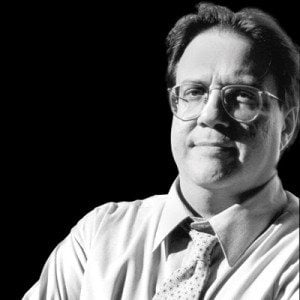News for Sale

In the next few weeks, The Dallas Morning News will begin charging for online news. It’s a daring attempt to reinvent the news business. The old formula that used to drive newspapers—85 percent of a paper’s revenue was from advertising, 15 percent was from circulation—is dead. Digital advertising is not replacing the money that newspapers have lost on print advertising and subscriptions. The News and other newspapers across the state have resorted to massive layoffs, salary freezes and pullbacks in coverage to keep driving corporate profits.
Through it all, the Dallas newspaper kept its fine investigative unit intact. It still routinely does some of the most important work in the state—whether it’s drilling down on the Texas Youth Commission or looking for malfeasance inside the Dallas Independent School District.
On Feb. 15, the Dallas paper will become one of the only large American newspapers to try to reverse what industry analysts call “the original sin”—giving away original reporting online. Here’s how publisher Jim Moroney framed the decision to charge on KRLD radio in Dallas: “I think a lot of people are waiting to see what happens with some of the early companies that go out there, like us and The New York Times. We’re going to give you more value.”
On Jan. 1, the paper raised its monthly print subscription cost to $34 from $30. In February, print subscribers will also get the digital News and so-called “subscriber content” on dallasnews.com. There are iPad and iPhone apps for the service, as well. There are tiered deals for digital-only subscribers. Here’s how the News framed “subscriber content” in its own story about the deal: “Subscriber content will include proprietary news and information produced by The News. Headlines, breaking news, most blogs, obituaries, classifieds and nonproprietary content such as syndicated wire stories will remain free.”
If the experiment in Dallas works, other dominos will fall. Jeff Cohen, editor of the Houston Chronicle, once told me that The Dallas Morning News was his gold standard. Cohen and editors around the state (hell, the nation) are watching the News try to pull off this transition. So we’re back to square one in the art-versus-commerce debate and what might be driving decisions in Dallas: corporate profits.
The plan to charge online readers might make the paper more money. There’s no doubt that the News will be limiting how many readers see the most important investigative stories. That raises the question of whether the News is playing Texas Hold ‘Em with its civic obligation—just as the state is facing massive budget cuts that will breed more poverty, racism and white-collar crime.
Now the paper wants to charge for that proprietary investigative work online. If people choose not to pay, will there be enough readers to spark the collective indignation necessary to change anything? Is the paper about to abandon its civic mission by deliberately shrinking its audience?
”We hope we are doing our job,” Moroney told the radio reporter in Dallas. A lingering argument has been that Big Media’s “job” is to make a living, a profit, by telling the truth. Now, as the last remnants of the Big Newspaper Monopoly cascade down, it’s time to re-examine the priorities of that “job.” If the News and other traditional enterprises have to reinvent themselves, then they have to examine their job description, their mission, their day-to-day checklists.
The stakes are high for the News and journalism in general. So the reporters up in Dallas must rededicate themselves to producing even more investigative journalism that serves the public’s right to know. The News has to do its edgiest, bravest work, ever, in this new pay-for-content dynamic. It has to prove that unassailable public service journalism—the kind that makes readers howl “What The Fuck!?”—will make money for Big Media’s online outlets.
Moroney says the paper will give readers “more value.” He needs to think about making civic values the driving engine for corporate profits.
Almost a century ago, the News famously took a stand against the KKK’s entrenched control of the city. Circulation initially suffered, but the paper emerged stronger than ever as the KKK’s overt influence and anti-News smear campaign eroded. That kind of editorial commitment will be more important than ever.


